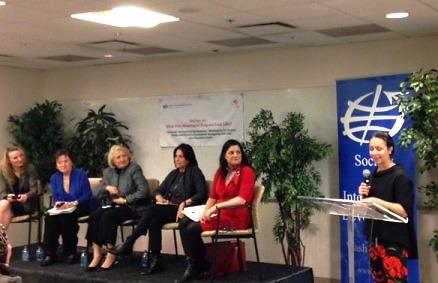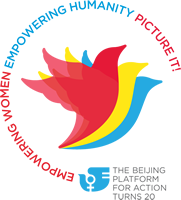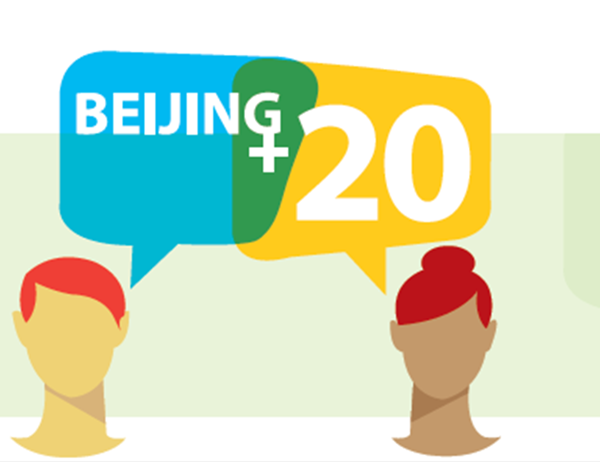Twenty years ago, Hillary Clinton’s speech at the Fourth World Conference on Women in Beijing brought women’s issues to the global stage. Her underlying message, “human rights are women’s rights and women’s rights are human rights,” still echoes around the world and evokes a call to action codified in the Beijing Platform for Action.
On April 9, four women who attended the 1995 conference shared memories and reflected on their experiences at the “Voices from Beijing” reception hosted at Chemonics International by the Gender and Inclusive Development (SID-GID) Workgroup of the Society for International Development–Washington, DC Chapter.

The speech was a critical moment for propelling women’s rights onto the national and international agenda. Lissa Muscatine, former Director of Communications to the First Lady, who drafted the speech with Clinton and Ambassador Melanne Verveer, recalled how the speech generated an energy that erupted when Clinton said women’s rights are human rights, an idea that was not well accepted at the time. “It sounds like a no brainer, but it was a big deal,” said Ambassador Verveer then Deputy Chief of Staff to President Clinton. Kathleen Hendrix, former Associate Director of the President’s Interagency Council on Women at the White House, added that fifteen years later calling women’s rights human rights had gone from being “edgy” to mainstream.
The conference was transformational for many. Alyse Nelson, President and CEO of Vital Voices, explained that she learned that power, platform and voice can raise the voices of women and has since been working to continue this work.
Where are we 20 years later?
Women’s rights remain the “unfinished business of the 21st century” according to Clinton and the No Ceilings: The Full Participation Report, commissioned by the Bill, Hillary & Chelsea Clinton Foundation, launched last month at the Commission on the Status of Women. The report outlines the progress and persistent gaps that still remain for women and girls. While there have been global advancements in legislation protecting women’s rights, women’s and girls’ health, maternal mortality, and girls’ enrollment in primary school, violence against women, a prominent theme in Clinton’s 1995 speech, continues to be a global scourge.
Addressing women’s issues has evolved from being the right thing to do to the smart and strategic thing to do for economic growth around the world. Perhaps the next step, as Ambassador Verveer recommended, is to stop calling these “women’s issues” because they truly effect everyone.
Learn more about the yearlong series: Beijing+20: What Does Meaningful Progress Look Like?:  http://www.sidw.org/2015-sid-gid-discussion-series
http://www.sidw.org/2015-sid-gid-discussion-series
Join us on Twitter: #SIDwGID and #Voices4Equality

